Borris, part two
The reason for the road trip was the Borris Festival of Books and Ideas. I've always wanted to go and jumped at the chance when Ann invited me. This meant I missed Lady Captain's Day at Shandon, most important day on the golf calendar. But you can't do everything. Here is Borris House.
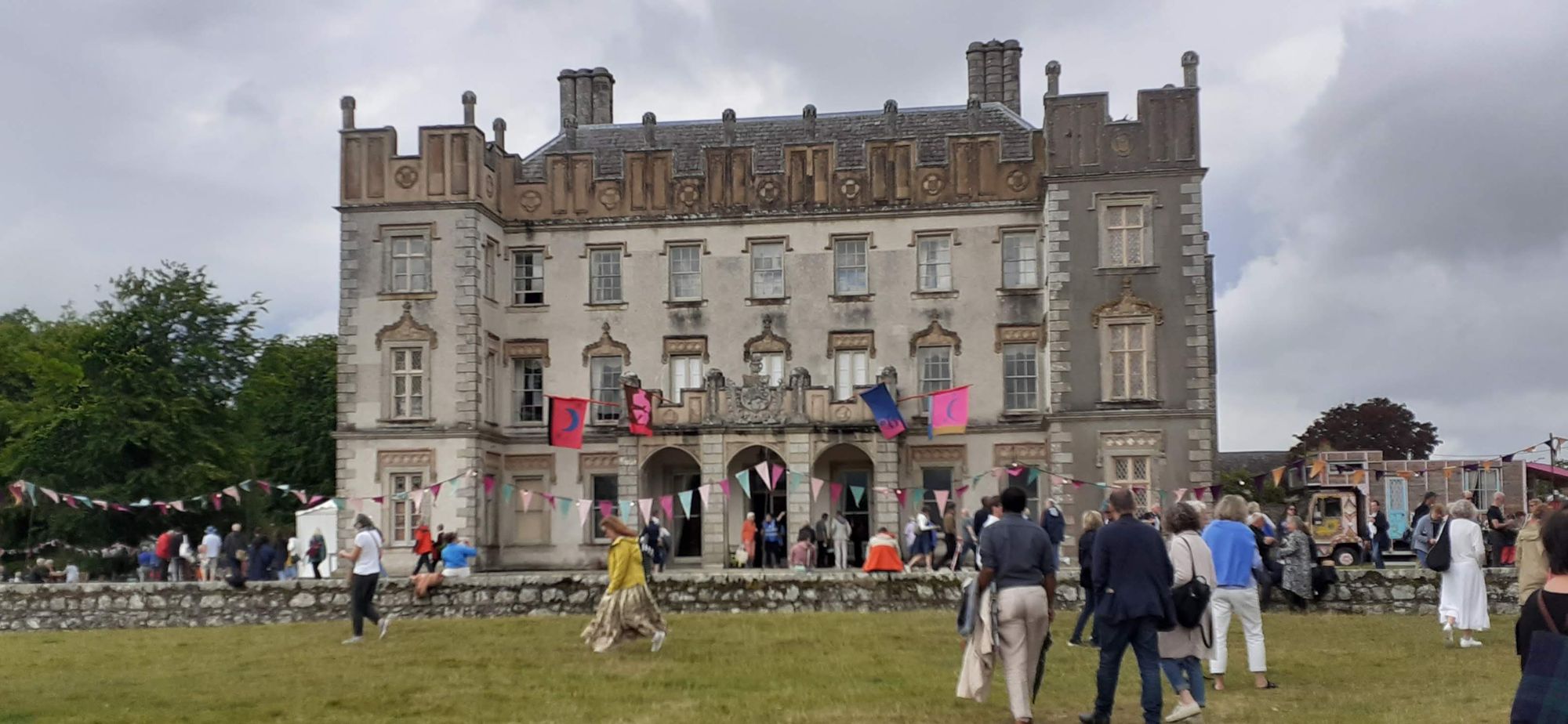
My first event of the day was an interview with a science writer, Gaia Vince, about how climate change will affect migration. I can't say I learnt much, but I applaud her for trying to popularise the state of the climate crisis. My second was a very interesting conversation between Irish writers John Banville and Mark O'Connell. Both have written books about an infamous double murder – one a fictional account and the other nonfiction. Banville on the left below, famous for his book The Sea. O'Connell's book is based on 1.5 years he spent interviewing the murderer. The discussion was much about the ethics of such a book and the writer's role.
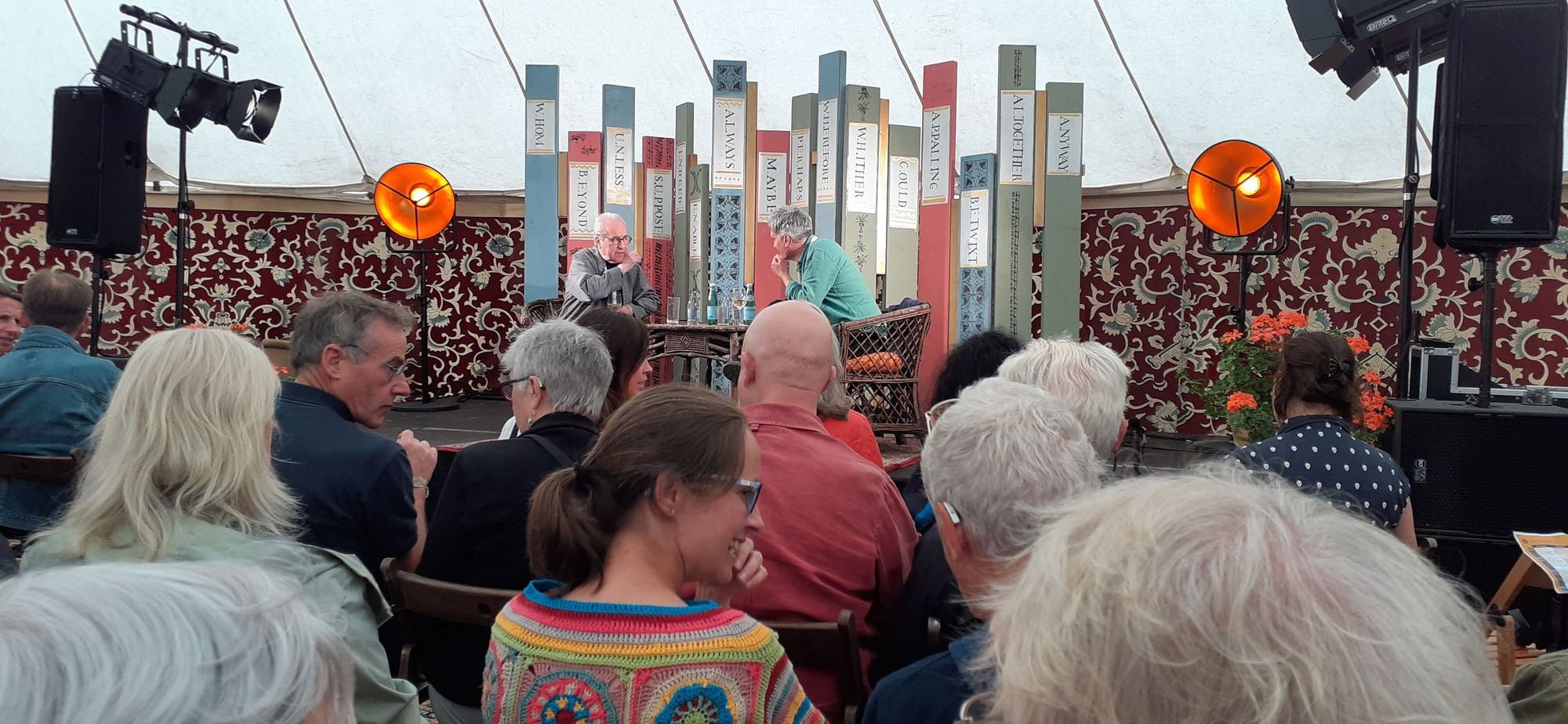
Next was Osman Yousefzada, an interdisciplinary artist whose CV includes fashion designer to the stars. His book, the Go Between, is about growing up in a strict muslim family in a red light district in Birmingham, England, in the 1980s. He watched women live at two extremes – those not allowed to leave the home and those who walked the streets.
During one of the breaks I went for a long walk around Borris, which apparently was famous for lace making. All of the pubs have displays of lace in the windows. An odd combination! The tags list the names of the women who created the lace.
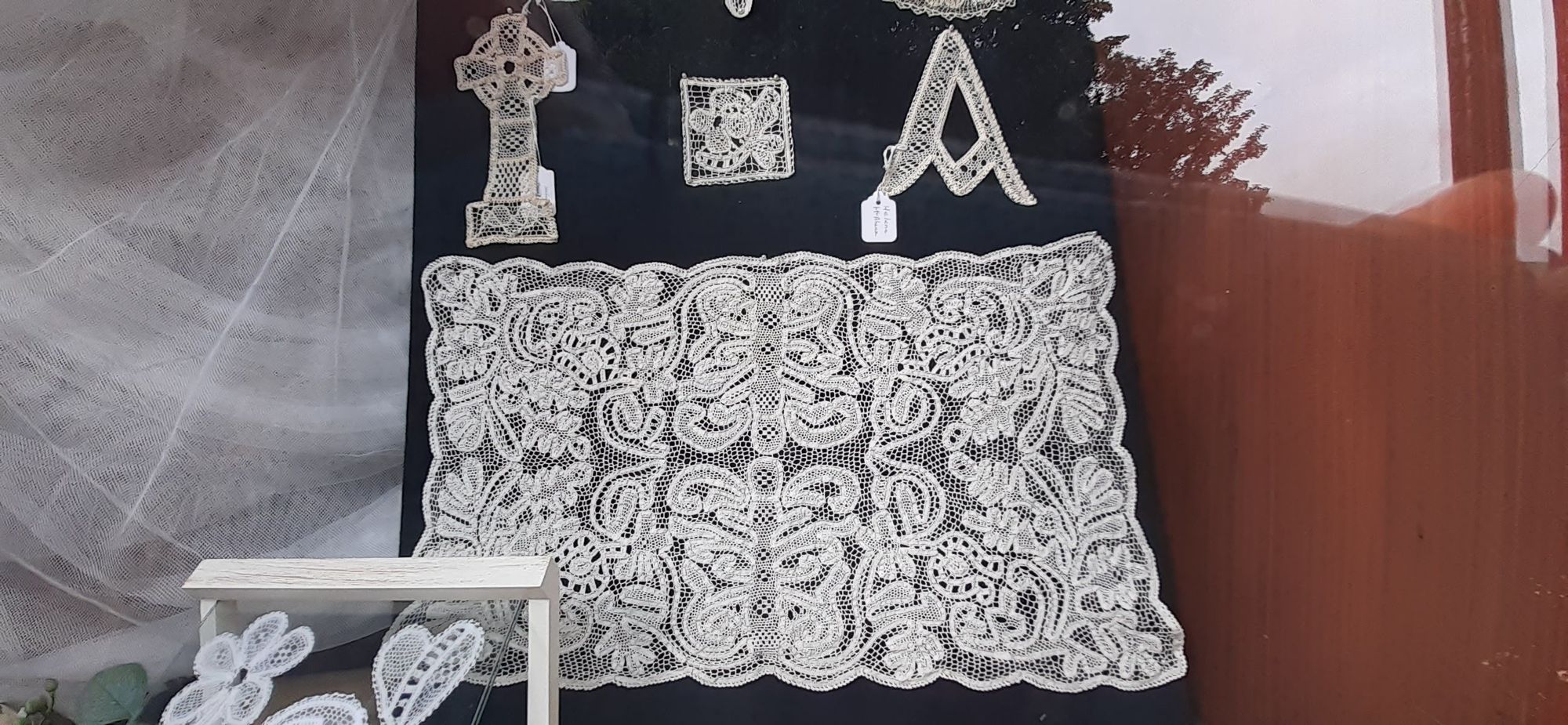
The Borris viaduct, built in 1850, has 16 arches.
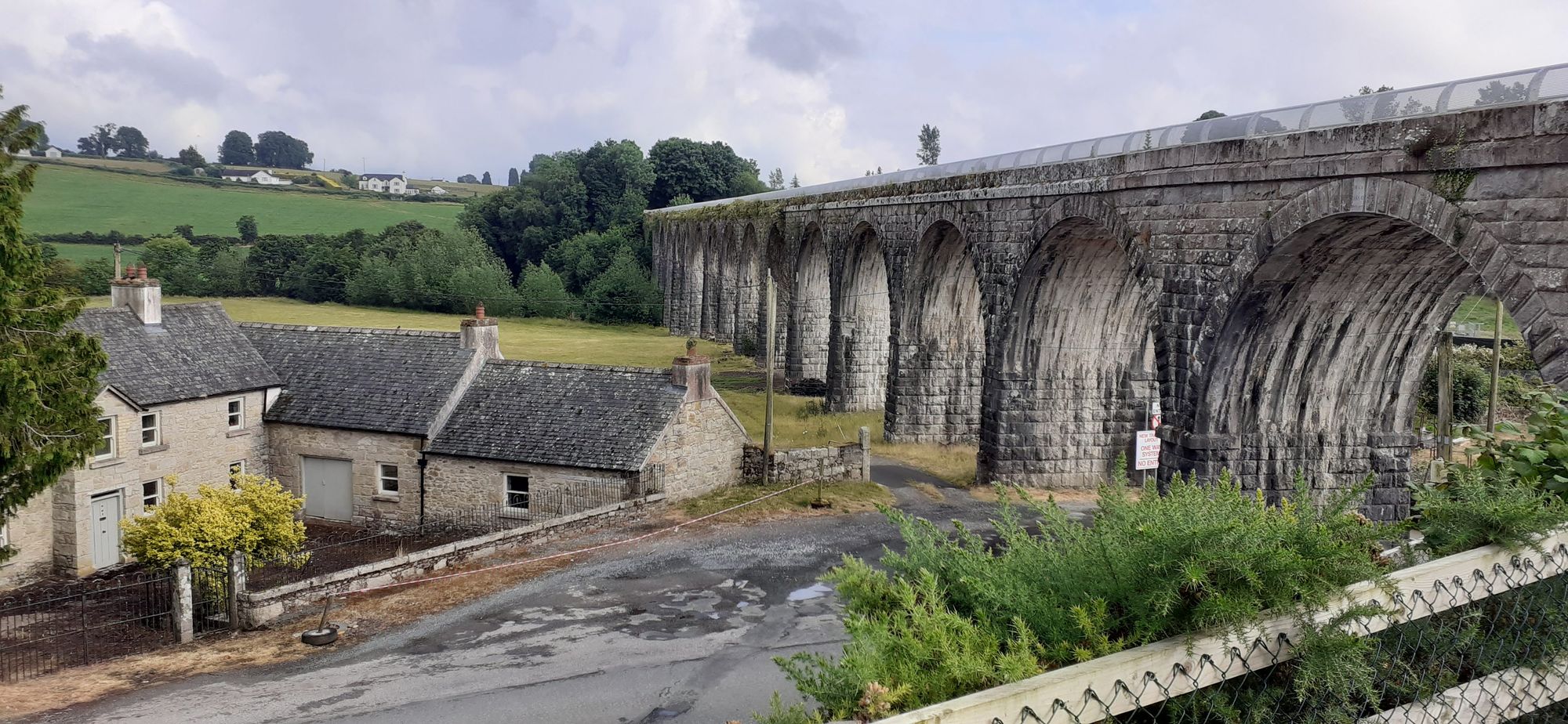
For the next panel, I'll just copy the programme description:
THE GEOPOLITICAL FALLOUT OF TODAY’S WARS: Andrew Small (No Limits: The Inside Story of China’s War with the West), Misha Glenny (Russia expert) and commentator on Asia William Dalrymple (The Anarchy) discuss the global jockeying of power. Moderated by journalist and broadcaster Gary Younge
I learnt a few things about the chess game involving the US, China, Russia and India. I didn't know for instance that Russia is funding its war partly through the sale of oil being refined by India. The US isn't sanctioning India for this because it needs to keep India onside in its China strategy. The cozying up to China of India, South Africa, Brazil, the Saudis has clearly spelled the end of US global dominance. Next:
THE FUTURE OF IRISH WOODLANDS: Eoghan Dalton (An Irish Atlantic Rainforest) and Paul McMahon (Island of Woods: How Ireland Lost its Forests) talk about the thrilling prospect of more diverse, natural woodlands in Ireland, asking whether we should still plant Sitka spruce across the country.
This was also very interesting. The loss of forest in Ireland is attributed to the English (our oaks built their cathedrals and ships). However that is only one small branch (haha) of the story. A famous Viking ship was made from Irish oak. Much of the tree cover was removed by farmers wanting to grow crops or graze cattle. Same the world over. The Irish government foolishly has subsidised the growing of Sitka spruce, a commodity crop. As a non native species grown in monocultures, it doesn't support biodiversity (insects, birds, understory trees).
For every session I went to, there were three concurrent ones I didn't. It was hard to pick! Last session was my favourite:
WHAT HAS HAPPENED TO THE IDEA OF EUROPE?: The UK has left, the invitation to Ukraine to join has caused aggravation, China is flexing, extremism is rife, and Germany has the reins... Fintan O’Toole and Philippe Sands ask how stable the European Union is now. Moderated by Kathy Sheridan.
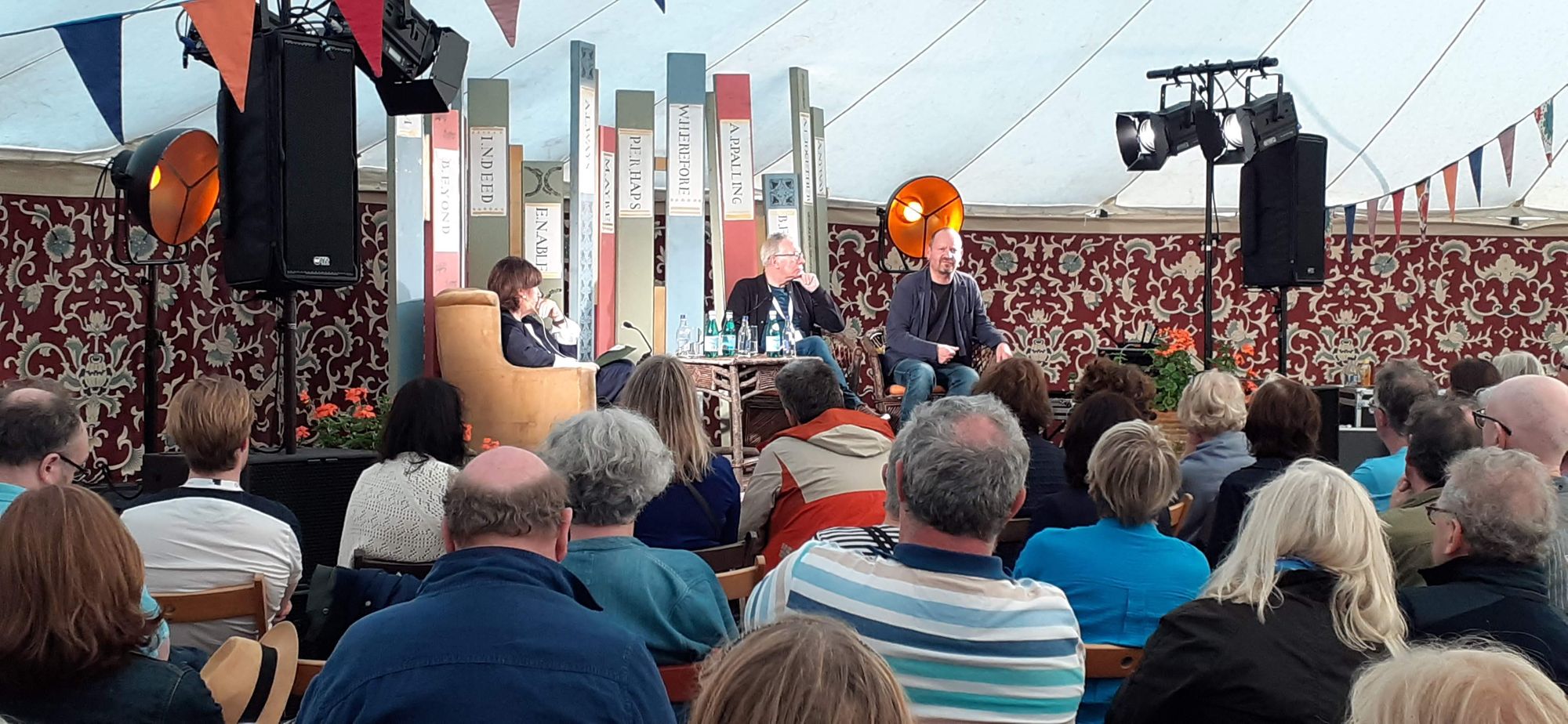
Sands (on the right) is a historian with a formidable back catalogue. O'Toole is a brilliant writer and thinker. It was like lightning under a tent. O'Toole writes a lot about identity. While he thinks of himself as a European, he would first identify as Irish. However both his children have married partners from other European countries and would not have strong Irish identities. With Anglo-French (or Franco-English?) parentage, Sands spoke eloquently about the difference between English and British and European identities. They discussed the Ukraine (half European, half Asian), Turkey, and other countries that have sought EU membership. How the EU became complacent and allowed Hungary and Poland to dilute EU democratic norms. How the EU will need to increase military spending, particularly if (God forbid) Trump is re-elected and withdraws US support for the Ukraine.
By the end of the day I was numb from all the ideas I'd been exposed to. Ann and Susan went swimming on the way home. Unfortunately I left my suit & towel at the BnB.
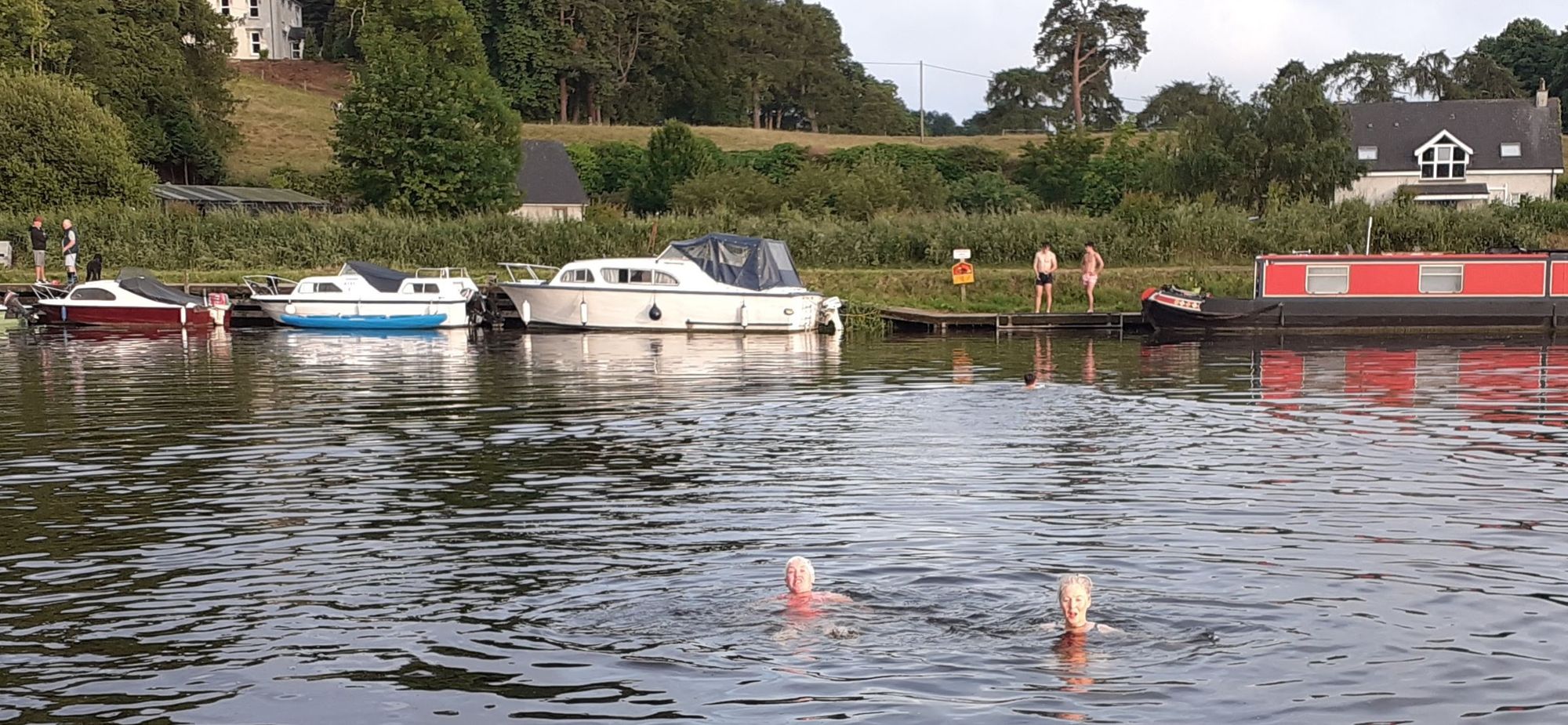
17 June